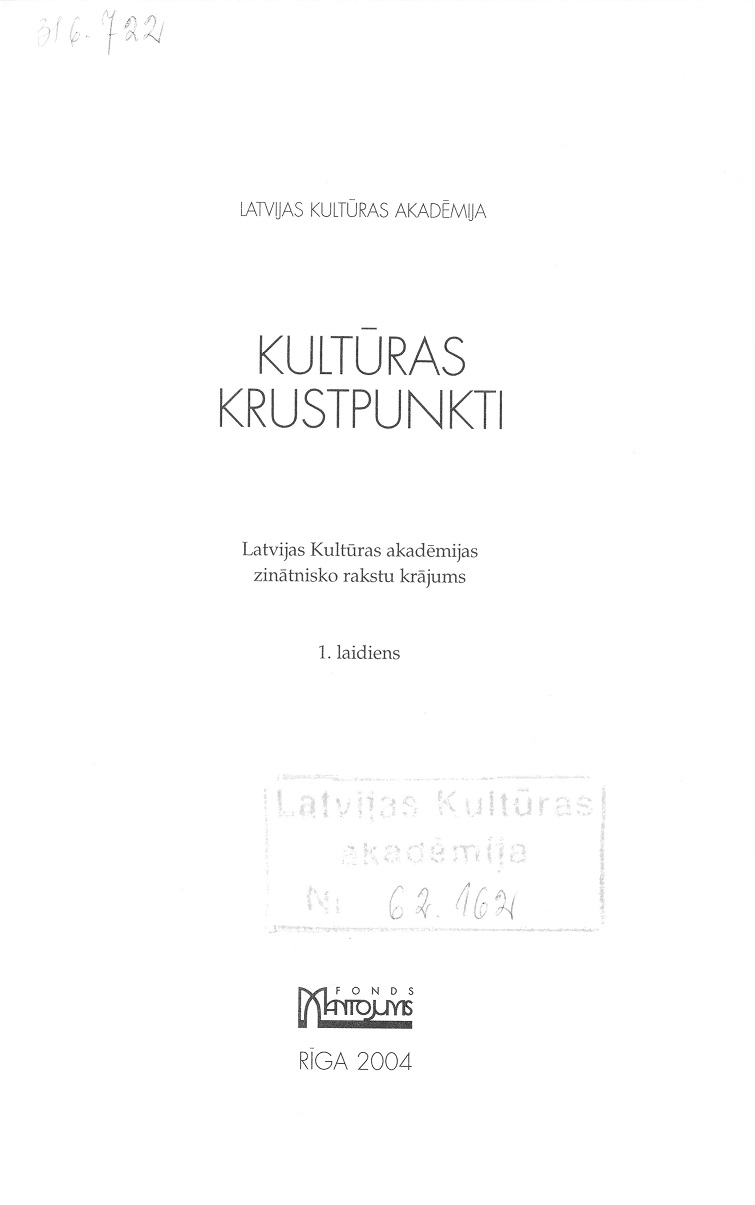Intelektuālis un sabiedrība
The Intellectual and Society
Author(s): Inese SviestiņaSubject(s): Epistemology, Ethics / Practical Philosophy, Social Philosophy, Higher Education , Social development, Sociology of Education
Published by: Latvijas Kultūras akadēmija
Keywords: Intelligentsia; society; role of intellectuals in society; being educated; being intellectual; higher education; morality of intellectuals;
Summary/Abstract: Many political and economic changes have taken place in the second half of the 20th century. It is important to consider the role of intellectuals in society Intellectuals are characterised as people whose main activity is the production of ideas and they have never enjoyed great popularity in society. Western culture often fails to distinguish between the concepts of "being educated" and "being intellectual" whereas in the Russian cultural tradition then be a difference in interpretation. At the end of the 19th century and at the beginning of the 20th century it was even more pronounced in Russia: an intelligent per son was an individual lacking higher education but striving for a better life for the nation (and its citizens). This article explores the relationship between intellectuals and society in the context of morals and power. The question is whether or not the acceptance of morals is a very important characteristic of the intellectual. We must acknowledge that morals have not demonstrated their vitality in society throughout centuries and, in fact, have occupied an important place only in philosophical analysis. I conclude that the acceptance of morals (and of social activity in general) is an essential feature characterising an intellectual. Therefore we cannot describe every distinguished scientist as an intellectual. Rather, intellectualism is an ideal only sometimes attained. It is characteristic of an intellectual to participate in the structures of power. Therefore we can say that the intellectual has become a person who realises the "ideals" of power in her or his life. There is little justification in seeing intellectuals as a de facto opposition group always ready to change the traditional values.
Journal: Culture Crossroads
- Issue Year: 1/2004
- Issue No: 1
- Page Range: 54-64
- Page Count: 11
- Language: Latvian

